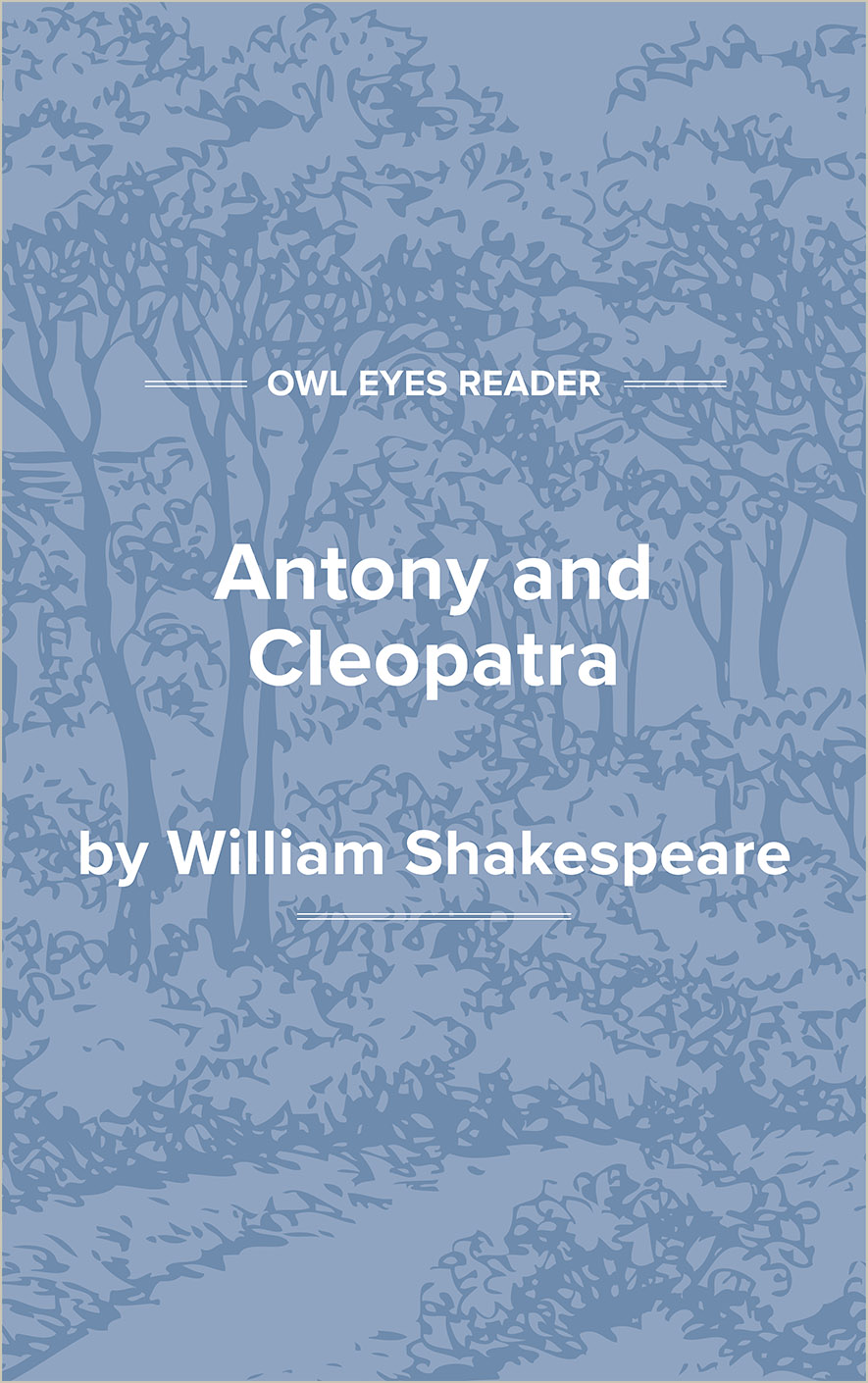Study Guide
Analysis Pages
Characters Discussed
Mark Antony
Mark Antony, also called Marcus Antonius, the majestic ruin of a great general and political leader, a triumvir of Rome. Enthralled by Cleopatra, he sometimes seems about to desert her for her real and dangerous rival, Rome. He marries Caesar’s sister Octavia for political reasons but returns to Cleopatra. His greatness is shown as much by his effect on others as by his own actions. His cynical, realistic follower Enobarbus is deeply moved by him, his soldiers adore him even in defeat, his armor-bearer remains with him to the death, and even his enemy Octavius Caesar praises him in life and is shocked into heightened eulogy when he hears of his death. Antony is capable of jealous fury and reckless indiscretion, but he bears the aura of greatness. He dies by his own hand after hearing the false report of Cleopatra’s death, but he lives long enough to see her once more and bid her farewell.
Cleopatra
Cleopatra (klee-oh-PA-truh), the queen of Egypt. As a character, she has the complexity and inconsistency of real life. Like Antony, she is displayed much through the eyes of others. Even the hard-bitten realist Enobarbus is moved to lavish poetic splendor by her charm and beauty. Only Octavius Caesar, of all those who come in contact with her, is impervious to her charms, and the nobility of her death moves even him. She is mercurial and self-centered, and there is some ambiguity in her love of Antony. It is difficult to be certain that her tragic death would have taken place had cold Octavius Caesar been susceptible to her fascination. She is most queenly in her death, which she chooses to bring about in “the high Roman fashion,” calling the dead Antony “husband” just before she applies the asp to her bosom.
Octavius Caesar
Octavius Caesar (ok-TAY-vee-uhs SEE-zur), a triumvir of Rome, Antony’s great rival. His youthfulness is set off against Antony’s age, his coldness against Antony’s passion, and his prudence against Antony’s recklessness. The result, from a dramatic point of view, is heavily in Antony’s favor. Caesar’s affection for his sister Octavia is almost the only warm note in his character. His comments on the deaths of Antony and Cleopatra show unexpected generosity and magnanimity.
Domitius Enobarbus
Domitius Enobarbus (doh-MIHSH-yuhs ee-noh-BAHR-buhs), Antony’s friend and follower, a strong individual. Although given to the disillusioned cynicism of the veteran soldier, he has a splendid poetic vein that is stimulated by Cleopatra. He knows his master well and leaves him only when Antony seems to have left himself. Miserable as a deserter, Enobarbus is moved so deeply by Antony’s generosity that he dies of grief. He serves as a keen, critical chorus for about three-fourths of the play.
Marcus Aemilius Lepidus
Marcus Aemilius Lepidus (MAHR-kuhs ee-MIHL-ee-uhs LEHP-ih-duhs), the third triumvir, a “poor third,” as Enobarbus calls him. He tries to bring together Antony and Octavius and to quell the thunderstorms that their rivalry frequently engenders. He is the butt of some teasing by Antony while they are both drinking heavily on Pompey’s galley. After the defeat of Pompey, Octavius Caesar destroys Lepidus, leaving himself and Antony to fight for control of the world.
Sextus Pompeius
Sextus Pompeius (SEHKS-tuhs pom-PEE-yuhs), called Pompey (POM-pee), the son of Pompey the Great. Ambitious and power-hungry, he has a vein of chivalric honor that prevents his consenting to the murder of his guests, the triumvirs, aboard his galley. He makes a peace with the triumvirs, largely because of Antony, but is later attacked and defeated by Caesar and loses not only his power but also his life.
Octavia
Octavia, the sister of Octavius Caesar. A virtuous widow, fond of her brother and strangely fond of Antony after their marriage, she serves as a foil to Cleopatra. She is not necessarily as dull as Cleopatra thinks her. There is pathos in her situation, but she lacks tragic stature.
Charmian
Charmian, a...
(The entire page is 1,423 words.)
Owl Eyes subscribers get unlimited access to our expert annotations, analyses, and study guides on your favorite texts. Master the classics for less than $5/month!

